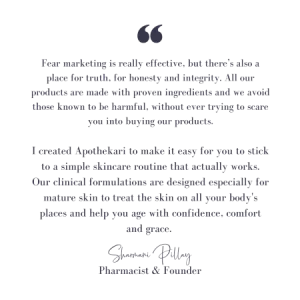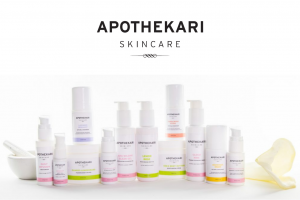Sugar Face (aka sugar skin) is a term that we are starting to hear more often. It’s become a trending topic as we begin to increasingly appreciate the detrimental effect that sugar has, not only on our health, but on our skin as well.
Does Sugar Ruin Your Face?
You may think of sugar face as a topic discussed only amongst celebrities, but dermatologists and nutritionists are talking about it as well. Just how does sugar age us? A recent scientific review discusses how the consumption of sugar reacts with proteins, creating elements called advanced glycation end-products (AGEs). First described in the context of diabetes, AGEs are formed through a type of non-enzymatic reaction called glycation.
In the skin, these substances lead to:
- Wrinkled skin
- Sagging under the eyes
- A gaunt look to the face
- Thinning of the skin
- Painful pimples
- Hardened cell structures.
Think of the way arteries harden to cause coronary heart disease. The process is similar in skin cells. Sugar can also weaken the body’s immune system, leaving it less able to fight off bacteria, which may be implicated in acne. Sugar face or sugar skin results in a detrimental impact on your appearance. But, the health risks of excessive sugar consumption can be great too.
Along with an increased risk of things like type 2 diabetes, eating too much refined sugar creates inflammation in the body, which can increase the risk of heart disease and cancer. When blood sugar levels drop, stress hormones are released resulting in anxiety and tension as common side effects. The immune system may also be impacted affecting thyroid function, energy levels and digestion.
How Long Does it Take to Get Rid of Sugar Face?
If you’re trying to avoid sugar, you should be mindful of foods where sugar is more hidden. Fruit juice, fruit and ‘sugary’ vegetables like beets and carrots are also high in sugar. Pay attention to where a food falls on the glycemic index and seek out those that rank lower, which will help to slow down glycation. You don’t have to cut out fruit completely but think of it as a treat, opting for a diet that consists mainly of leafy green vegetables, lean proteins and healthy fats. Think you can never have cupcakes again? Take heart.
Great skin is made up of a combination of factors including genetics, skin care, along with environmental and lifestyle factors. Sugar, an inflammatory food, ranks high on the list of things to avoid, but you should also be paying attention to protection from environmental toxins (like pollution and UV rays), managing stress and getting adequate sleep. Thankfully, it’s never too late for lifestyle changes.
Sugar can speed up aging, but adopting healthier habits and a great skin care routine can start to slow this process – whatever your age. Sugar face? We’ve got you beaten!
In previous posts, we’ve discussed the other three faces that the doctor describes:
- Gluten Face – Characterized by a range of symptoms including psoriasis, eczema, acne or dry skin.
- Wine Face – Typically associated with individuals who consume one or two glasses of wine or other alcohol most nights of the week, skin becomes dehydrated, making fine lines and wrinkles look worse. The face may become red and make the individual appear older.
- Dairy Face – Characterized by a range of symptoms including swollen eyelids, bags and under eye dark circles, small white spots and bumps on the chin.







